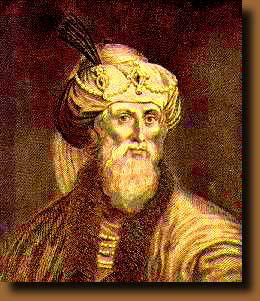Post Author: Bill Pratt
Does it bother you that the Bible is composed of 66 different books instead of one single tome?
What about the fact that there were errors made in copying some of the Bible manuscripts over the last few thousand years?
Does it cause you to doubt Christianity because there are some difficult passages in the Bible?
Do you wish Jesus didn’t say some of the harsh things he said?
Do you find it strange that the biblical authors come from vastly different backgrounds (e.g., shepherds, kings, fishermen)? Or that they composed poetry, historical narrative, allegory, and apocalyptic letters instead of a theological/moral textbook with each point being carefully outlined (e.g., “see section 11.3.4.7 for why murder is wrong”).
Does it irritate you that Jesus only ministered for a few years and covered a limited range of topics?
Are you worried about the way the canon of Scripture developed over time in the church instead of God sending Scripture to earth in a black obelisk, like in the movie 2001: A Space Odyssey?
Do you wish Jesus and the apostles had addressed more social ills than they did?
Listen carefully: If these kinds of things really eat at you, you have either rejected Christianity or you have erected barriers around your faith so that you can shut off your brain and not think any more.
You see, what you fail to realize is that God has chosen to use flawed and fallible human beings in the framework of human history to accomplish his purposes. We are included in his plans and he allows us to be important actors in the drama he has written, but there is a catch with this approach: Christianity turns out to be messier than some of us would like.
Jesus is both divine and human; the Bible is both divine and human. Both of these are tenets of Christianity, so why do so many of us want to drop the human part of the Bible and the human part of Jesus?
Jesus, as the God-man, was sinless during his life in earth, but that doesn’t mean he was some kind of emotionless Spock with no feelings and no passion. The Bible, because it is divinely inspired, is inerrant in what it teaches, but that doesn’t mean that God had to compose the Bible as a dry textbook that dropped from the sky one day, avoiding all human interference.
Learn to appreciate the fact that God has included humanity in his plans. The sooner you do, the better you’ll understand Christianity.
 Recently I was in a discussion with a skeptic of Christianity, a man who had been Roman Catholic for 55 years, and then decided that he couldn’t believe Christianity any longer. During our conversation, he asked what historical evidence I could provide that Christianity was true, so I immediately went into the
Recently I was in a discussion with a skeptic of Christianity, a man who had been Roman Catholic for 55 years, and then decided that he couldn’t believe Christianity any longer. During our conversation, he asked what historical evidence I could provide that Christianity was true, so I immediately went into the 
 In parts
In parts  In parts
In parts